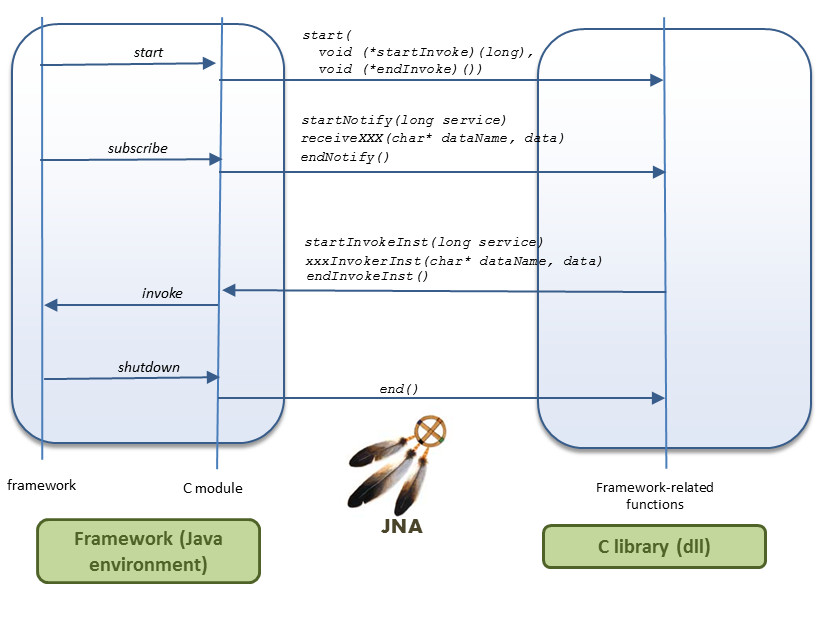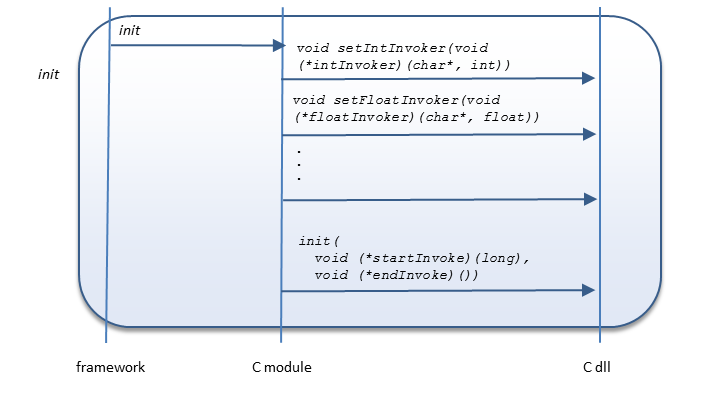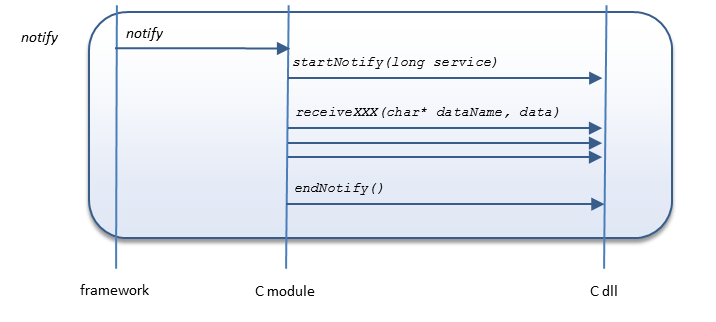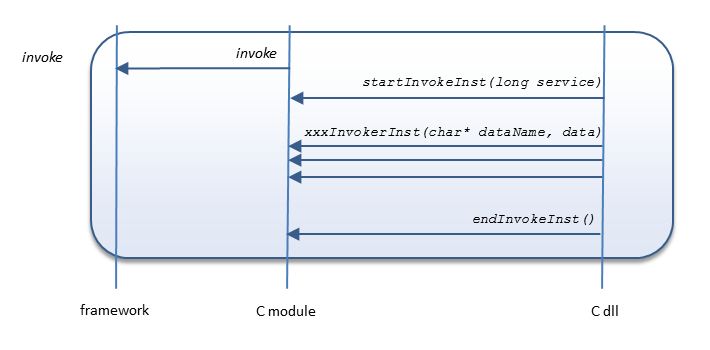Home
Categories
Dictionary
Glossary
Download
Project Details
Changes Log
What Links Here
FAQ
License
Basic C initialization and runtime sequence
1 Overview
2 Initialization phase
3 Start phase
4 Runtime phase
4.1 Service notification
4.2 Service invocation
5 See also
2 Initialization phase
3 Start phase
4 Runtime phase
4.1 Service notification
4.2 Service invocation
5 See also
This article explains the initialization and runtime sequence of Basic C modules. Note that the C modules are associated with C libraries (dll).
Each function of the framework initialization and runtime sequence is associated to one or several functions to be accessed in the C library.





Each function of the framework initialization and runtime sequence is associated to one or several functions to be accessed in the C library.
Overview
The initialization and runtime sequence of C modules follows several phases:- The initialization phase: this phase takes place during the module initialization
- The start phase: this phase takes place during the module start
- The runtime phase: this phase takes place during the framework runtime phase

Initialization phase
When the module is initialized, the pointers to the Java functions to use to invoke services are given to the C library. These pointers allow to set values for Services datas:void setIntInvoker(void (*intInvoker)(char*, int))for setting the value of an int datavoid setFloatInvoker(void (*intInvoker)(char*, float))for setting the value of a float data- etc...
init function is called. This function must have the following signature:init(void (*startInvoke)(long), void (*endInvoke)())
- The first
void (*startInvoke)(long)pointer points to the Java function which will be called at the start of a Service invocation - The second
void (*endInvoke)()pointer points to the Java function which will be called at the end of a Service invocation

Start phase
When the module is started, the C librarystart function is called. This function must have the following signature:start()

Runtime phase
Service notification
A Service notification follows the following steps:- The
void startNotify(long)function is called with the ID of the Service as argument - The
void receiveXXXX(char*, value)function is called for each Service data - The
void endNotify(long)function is called with the ID of the Service as argument

Service invocation
A Service invocation follows the following steps:- The C library calls the
void (*startInvoke)(long)function with the ID of the Service to invoke as the argument - For each Data the C library wants to set the value, the C library calls the
void (*xxxInvoker)(char*, value)function with the name of the data and the value as arguments. The function pointer called for each data type is the one specified during the initialization phase - The C library calls the
void (*endInvoke)()function to specify that the Service invocation must be performed

See also
- Framework initialization and runtime sequence: This article presents the framework initialization, runtime, and shutdown sequences
- C modules: C modules are modules which are implemented as dlls coded in C
×
![]()
Categories: concepts